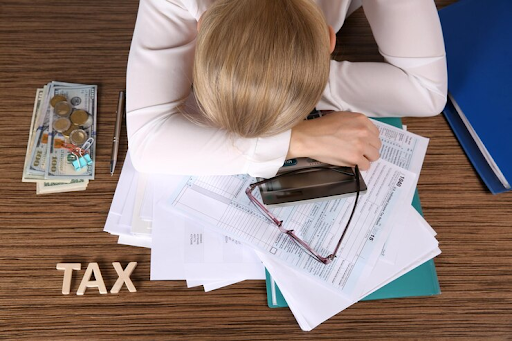Facing tax debt can be an overwhelming experience for individuals and businesses alike. The Canada Revenue Agency (CRA) has extensive powers to collect unpaid taxes, including garnishing wages, freezing bank accounts, and even seizing assets. For Canadians dealing with tax debt, navigating CRA collections can seem like an uphill battle. Fortunately, tax debt relief in Canada offers viable solutions to manage and resolve these issues, ensuring financial stability and peace of mind.
In this blog, we’ll explore effective strategies to address tax debt and provide insights into obtaining income tax debt relief in Canada, helping you regain control over your finances while mitigating the impact of CRA collections.
Understanding CRA Collections
The CRA plays a critical role in enforcing Canada’s tax laws. If you owe back taxes or fail to file returns, they will initiate collection actions to recover the debt. These actions can include:
- Wage Garnishments: The CRA can contact your employer and deduct a portion of your salary directly.
- Bank Account Seizures: They have the authority to freeze your accounts and withdraw funds.
- Asset Seizures: In severe cases, the CRA can seize and sell property to recover unpaid taxes.
Tips for Addressing Tax Debt
1. Assess Your Tax Debt Situation
Start by understanding how much you owe, including penalties and interest. Request a detailed statement of account from the CRA. Knowing the full scope of your debt will help you create a realistic repayment plan.
2. Communicate with the CRA
Open communication with the CRA can help prevent enforcement actions. Explain your financial situation and explore available options, such as a repayment plan. Being proactive demonstrates your willingness to resolve the issue, which can work in your favour.
3. Explore Income Tax Debt Relief in Canada
For many taxpayers, income tax debt relief in Canada can offer much-needed support. Relief options include:
- Taxpayer Relief Provisions: You can request relief from penalties or interest due to circumstances beyond your control, such as illness or financial hardship.
- Consumer Proposals: Filing a consumer proposal through a licensed insolvency trustee allows you to negotiate reduced payments while avoiding bankruptcy.
- Voluntary Disclosure Program (VDP): If you haven’t filed your taxes or reported income, the VDP enables you to come forward and potentially avoid penalties.
Consulting a tax professional can help you identify the most appropriate option for your situation.
Professional Assistance: Why It Matters
Benefits of Professional Help:
- Expert Negotiation: Professionals can negotiate with the CRA on your behalf to secure favourable repayment terms.
- Tax Law Expertise: They understand the intricacies of Canadian tax laws, ensuring you take advantage of all available relief options.
- Stress Reduction: Having an expert handle your case allows you to focus on rebuilding your finances.
When seeking professional assistance, choose someone with a proven track record in resolving tax debt issues.
Income Tax Debt Relief: Preventing Future Issues
While resolving current tax debt is critical, preventing future debt is equally important. Here’s how to stay on top of your taxes and avoid falling into debt again:
1. File Taxes on Time
Many taxpayers accumulate debt simply by failing to file on time. Even if you can’t pay the full amount owed, filing by the deadline avoids additional penalties.
2. Budget for Taxes
Plan for tax payments by setting aside a portion of your income. If you’re self-employed, make quarterly payments to avoid a large balance at year-end.
3. Seek Financial Advice
Working with a financial advisor can help you develop better money management skills, ensuring you have the resources to meet your tax obligations. By staying proactive, you can reduce the likelihood of needing income tax debt relief in Canada in the future.
The Importance of Taking Action
Ignoring tax debt will only make the situation worse. If you’re dealing with CRA collections, acting quickly and seeking professional assistance can help you regain control. The sooner you address the problem, the more options you’ll have for resolving it effectively.
Whether you’re exploring income tax debt relief in Canada or negotiating directly with the CRA, taking proactive steps can prevent long-term financial challenges.
Conclusion
Dealing with tax debt is undoubtedly stressful, but with the right strategies and professional support, it’s possible to achieve resolution. Tax debt relief in Canada provides a lifeline for those facing financial difficulties, offering pathways to manage debt and avoid aggressive CRA enforcement actions.



 Double Rewards Today – Amiribook Online Cricket ID for LSG vs CSK
Double Rewards Today – Amiribook Online Cricket ID for LSG vs CSK












